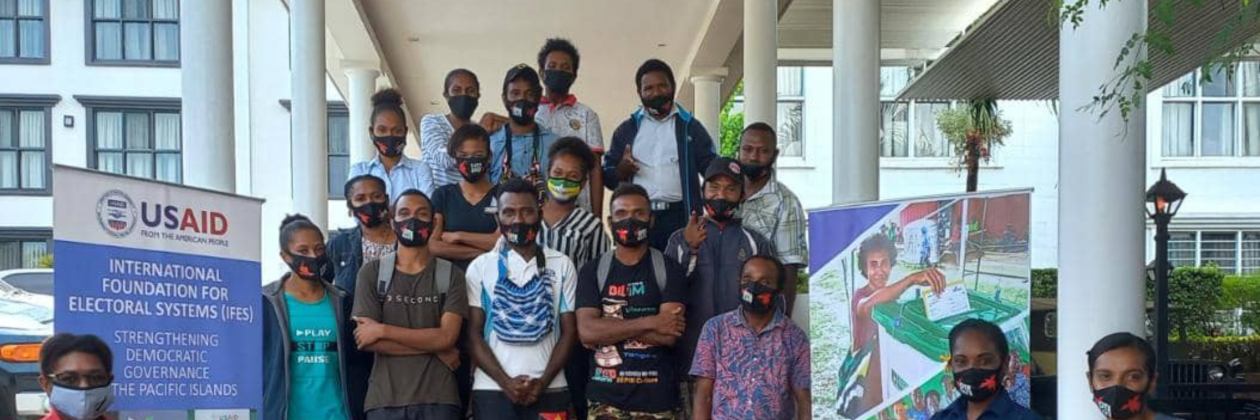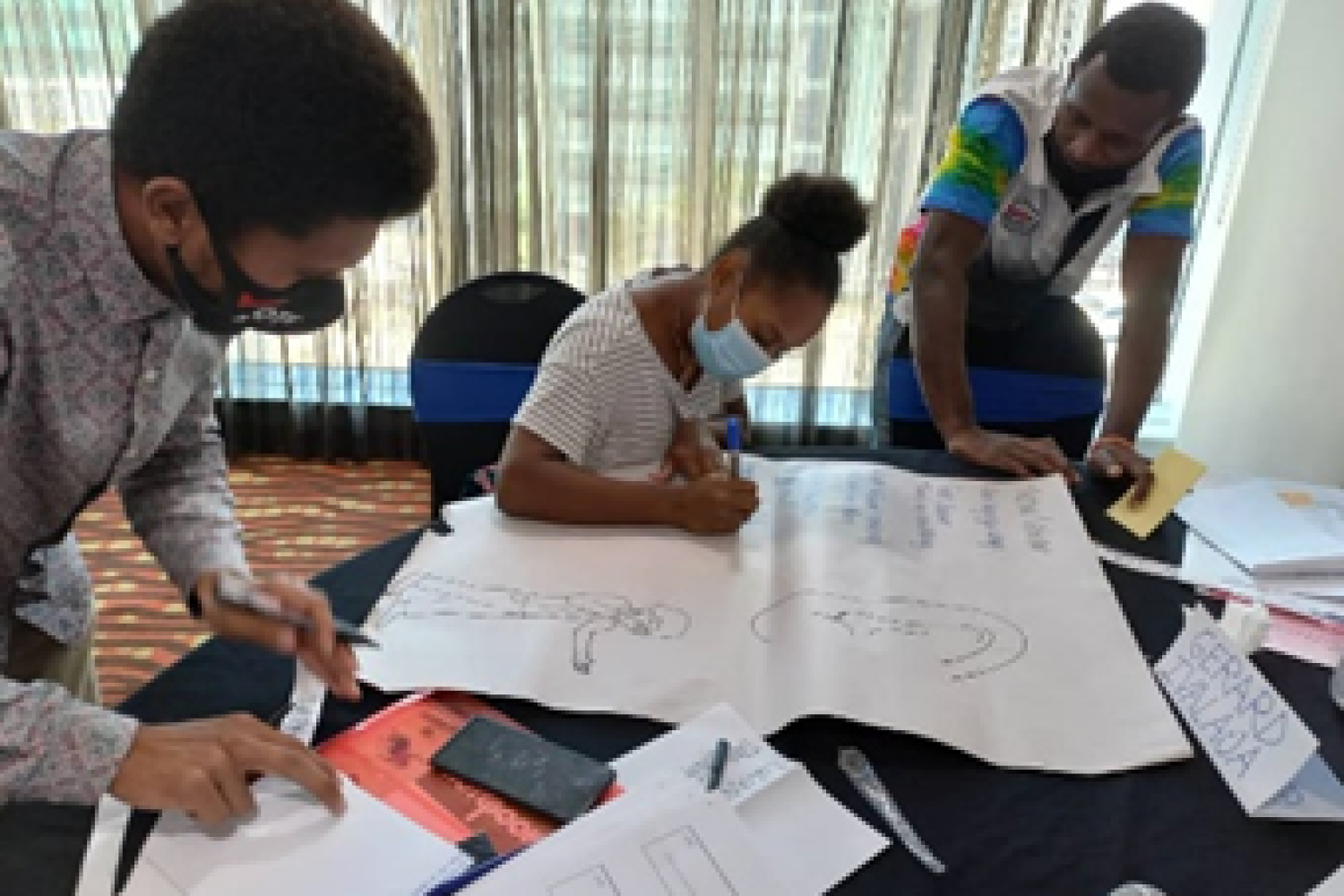
How Young People are Empowering and Educating Their Peers in Papua New Guinea
When Gerard Ivalaoa applied to universities in Papua New Guinea, he struggled with his family’s desire for him to pursue a career in computer science against his passion for advocacy and civil rights, channeled into a career as a lawyer.
While initially studying computer science at university, Gerard still felt compelled toward a path of law, so he began applying to different schools. Two rejections later, Gerard found himself back home in a settlement in Port Moresby, building houses and doing yard work with his mother.
Motivated by his own adversities, he decided to write a book about how young people like him could achieve academic excellence despite obstacles. Without access to a computer, he typed the book—all 150 pages—on his Android smartphone. Just days after publishing it, journalists interviewed him, fascinated by how he wrote the book entirely on his phone with poor internet access and electricity.
Because of Gerard’s self-motivation and hard work, the book elevated him to become a youth advocate and pursue the path he got rejected from. Soon, the International Foundation for Electoral Systems (IFES) invited him to a training on voter education as part of the Youth Supporting Participation, Action, and Civic Engagement (Youth SPACE) program.
“One of the things I appreciated about the program was that it helps young people discover themselves,” Gerard said. “I grew up in an atmosphere where people are doing their own things and don’t care about what resources there are and what the government is doing.”
Gerard Ivalaoa and other Youth SPACE participants
To generate awareness and excitement ahead of the 2022 Papua New Guinea general election, the Youth SPACE program reached over 340 young people in their communities, teaching many first-time voters how to cast a valid ballot and engage in other processes surrounding the election.
Young people under 25 make up approximately 60 percent of Papua New Guinea’s population, unlocking many eligible voters between the ages of 18 and 25. But registering to vote and becoming educated is historically a daunting task since school curriculums don’t encourage it and government resources and services are unevenly distributed.
By participating in the program, Gerard discovered that he could translate his advocacy for young people to become leaders in their communities to mobilize other young people to learn about their voting rights and become leaders to promote democracy.
Throughout Gerard’s process of mobilizing young people, he realized he needed to overcome the hurdle of young people’s feeling of neglect from the government, especially in low-income villages. “When you try to convince young people about voter education, they think that they are being used for a [political] agenda,” he said.
With the support of IFES, Gerard and other young leaders then conducted similar programs in their communities. Among a group of young people from lower-income villages whom Gerard recruited, he said their feelings toward elections changed as a result of the activities, including the opportunities for participants to host a radio show about voter education and organize a youth voter festival.
As the youth population continues to grow, the number of first-time eligible voters will increase. Gerard says advocacy programs such as Youth SPACE will become more instrumental, with his group still planning to reconvene during the holidays despite the program’s conclusion.
“We choose the government, it does not choose us,” he said.
Youth SPACE supports participants in developing a solid foundational understanding of their rights and phone responsibilities and equips participants with the skills to effectively lead, communicate, and mobilize stakeholders. Young people can build constructive relationships and trust with democratic actors and processes.
The Youth SPACE program is made possible by the generous support of the American people through the United States Agency for International Development (USAID) under Award No. AID-OOA-L-15-00007. The opinions expressed herein are those of the author(s) and do not necessarily reflect the views of USAID or the United States Government.





